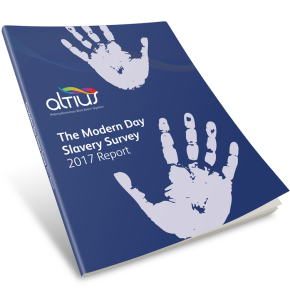
Seven steps to manage modern slavery
Following the introduction of the Modern Slavery Act in 2015, businesses have been thinking about their procurement process in more detail than ever before.
Modern slavery still occurs in every country in the world, according to the Chartered Institute of Procurement, and with businesses that fall foul of modern slavery facing legislative risk, it is important that businesses understand completely and implement and manage the risk of modern slavery across their supply chain.
As a result, CIPS has reinforced its seven stages of the procurement cycle to help professionals negate the risk of modern slavery.
- You should identify supply chain vulnerabilities, prioritising risk by assessing your current and prospective purchase against a number of factors, including level of spend, level of business critical risk, and likelihood of non-compliance against company ethical objectives and the law.
- Map your supply chain to understand where the labour-intensive parts of your supply chain exist – and ensure good human resource management occurs to negate the risk of modern slavery. Contractors need to abide by your social and environmental criteria, once identified, for appointing suppliers.
- Contractor engagement should be used to discover the working standards, best practice, and identified issues of each individual contractor, allowing you to develop a procurement plan to sustain the quality and price of the product or service required. Buyers should also develop procurement plans with time frames, evaluation criteria, and records of who is responsible internally – helping to ensure that new contractors and sub contractors meet the new procurement criteria.
- Implementing new policies, rules, or procurement processes will ensure full compliance throughout your supply chain.
- Once pre-qualification questionnaires have been submitted, you should research any inter-related elements that can negate the risk of modern slavery, and improve the overall relationship with your contractors. Engaging with local organisations, trade unions, and other worker’s groups to identify any potential issues that may occur. This will also show whether written claims of the contractors surrounding their social environmental practices is shown to be false.
- Ethical and sustainable clauses must now be added to contractual agreements and managers should ensure contractors thoroughly understand the contents of the contract, obtain any feedback, and more importantly, ensure they stick to the agreed key performance indicators.
- After adding these clauses you should regularly review them – allowing you to ensure compliance to agreed contracts and policies and to see which suppliers are struggling to maintain your standards. Many organisations are moving towards ‘beyond auditing’ to ensure contractors and suppliers are focussed on what is required to help improve in relation to the new legislation.
Organisations are facing a lot of scrutiny to improve their supply chain’s conformance to modern slavery. You should integrate ethical standards, such as modern slavery policies, into your processes in order to ensure the uppermost compliance throughout your supply chain, you should integrate ethical standards, such as modern slavery policies.
You can download the Modern Day Slavery Survey 2017 Report and explore how UK businesses are rising to the compliance challenge across their supply chain.
Contact:
Phone: 01332 960320
Email: enquiries@altiusva.com
Visit Supplier's page
Latest news

8th April 2025
First look at industry speakers for GEO Business 2025
GEO Business, the UK’s premier geospatial event, is set to return to ExCeL London on 4 – 5 June 2025, bringing together the brightest minds in the industry.
Posted in Articles, Building Industry Events, Building Industry News, Building Products & Structures, Building Services, Exhibitions and Conferences, Information Technology, Innovations & New Products, Restoration & Refurbishment, Retrofit & Renovation, Seminars
8th April 2025
Digital Construction Week 2025 announces first wave of industry-leading speakers
Digital Construction Week (DCW), the UK’s premier event for digital innovation in the built environment, is set to return to ExCeL London on 4 – 5 June 2025.
Posted in Articles, BIM, Infrastructure & CAD Software, Building Industry Events, Building Industry News, Building Products & Structures, Building Services, Building Systems, Civil Engineering, Exhibitions and Conferences, Hard Landscaping & Walkways, Health & Safety, Information Technology, Innovations & New Products, Landscaping, Retrofit & Renovation, Seminars
7th April 2025
Abloy UK provides bespoke access control solution for CPA Group’s Lanarkshire HQ
Abloy UK has supplied CPA Group with its PROTEC2 CLIQ solution to streamline access control and protect assets at its headquarters in Shotts, Lanarkshire.
Posted in Access Control & Door Entry Systems, Architectural Ironmongery, Articles, Building Industry News, Building Products & Structures, Building Services, Case Studies, Doors, Facility Management & Building Services, Health & Safety, Restoration & Refurbishment, Retrofit & Renovation, Security and Fire Protection
7th April 2025
ASSA ABLOY EMEIA: A new generation of reader is added to the Aperio digital access family
There is now a way to control access digitally, effectively and wire-free, thanks to ASSA ABLOY EMEIA…
Posted in Access Control & Door Entry Systems, Architectural Ironmongery, Articles, Building Industry News, Building Products & Structures, Building Services, Doors, Facility Management & Building Services, Health & Safety, Information Technology, Innovations & New Products, Posts, Retrofit & Renovation, Security and Fire Protection
 Sign up:
Sign up: